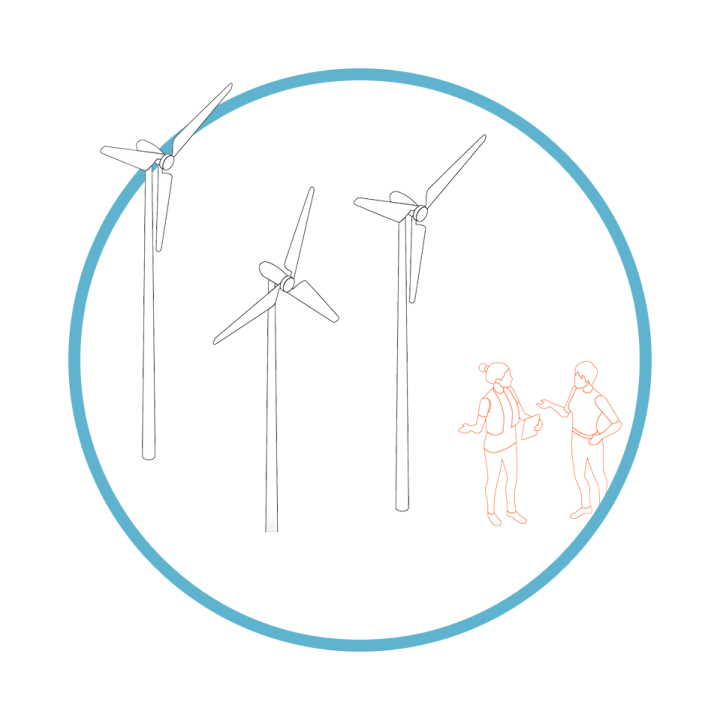B2B online trading in Europe is growing fast and has already exceeded a trillion euros in sales. Largely responsible for this growth rate is the COVID pandemic, pushing many more companies toward digital purchasing and distribution channels. But with the added appeal and importance also comes a responsibility to make the entire process as sustainable as possible – from production to delivery. Online retail already boasts a better environmental balance than stationary retail. There are fewer brick-and-mortar shops, but many more warehouses for storage and packaging to cope up with large shipment volumes. The way B2B trade can make a positive ecological contribution is by consciously engaging in ‘last mile’ measures and using renewable despatch packaging such as grass-paper cartons.
B2B retailers collaborate closely with suppliers to achieve sustainability goals, given new legal framework conditions. These include the Supply Chain Act and international guidelines such as the 17 Sustainable Development Goals set out by the United Nations (UN).
KAISER+KRAFT is one of Europe’s leading B2B omnichannel retailers for business, warehouse and office equipment. Sustainability has been a priority for over a decade. We spoke with Moritz Stadler, Sustainability Officer, about KAISER+KRAFT’s strategies and measures for achieving this.

Sustainable KAISER+KRAFT products at Unite
KAISER+KRAFT is one of Europe’s leading B2B omnichannel retailers for business, warehouse and office equipment. With a headcount of over 1,000, the company has a presence in more than 18 countries across Europe. One of KAISER+KRAFT’s long-term goals is to balance economic, ecological and social issues. The other is to assume a role model function for sustainability within the industry.
You can find KAISER+KRAFT’s sustainable product catalogue and company information on unite.eu. Find out more about Unite’s responsibility and sustainability practices here.
Mr Stadler, KAISER+KRAFT is a traditional company with a long B2B trading history. Your motto is to spearhead change while preserving and protecting the environment. So, hat does sustainability mean to you in this context?
We’re fully aware that, as a company, we leave our mark on the planet. That means we have a responsibility to society and the world in which we operate. So in 2011, we launched our SCORE programme, which stands for Sustainable Corporate Responsibility. Sustainability is relevant to every aspect of our business. Climate neutrality, a sustainable product portfolio, our support for international sustainability initiatives and our employees’ commitment to these areas are our cornerstones. Working with Unite ties in nicely with our strategy. With the Unite platform, we can reach buyers who care about sustainability as much as we do.
Packaging and transport logistics are essential topics in e-commerce, given energy and material consumption. So how do you practise sustainability in your B2B mail-order business in Germany and Europe?
We invest in intelligent, sustainable solutions and work with science and logistics experts to make our shipping procedures more climate friendly. For instance, we opt for a two-stage distribution model, using particularly efficient European routes to access our distribution warehouses. According to Prof. Dr Dirk Lohre and his team at the Steinbeis Forwarding and Logistics Center, this route is at least 1.5x more efficient. We also invest in green packaging materials like recycled cardboard and plastics. In addition, we always use the smallest packaging size possible, thus reducing waste for our customers. And we deliver 80% of our products in their original packaging.

We are thorough whenever we onboard new suppliers for our sustainability range. That includes us asking for proof of certifications and holding lots of briefings. This commitment level pays off.
Moritz Stadler, Manager Group Sustainability TAKKT AG
What challenges do you face when defining sustainability criteria with your business partners?
Implementing sustainability criteria still requires lots of education and persuasion. Our suppliers are, of course, aware that sustainability has become too important to ignore. But the time, money and resources involved in document management are considerably high if you’re looking to reposition your company in keeping with sustainable goals. We are thorough whenever we onboard new suppliers for our sustainability range. That includes us asking for proof of certifications and holding lots of briefings. This commitment level pays off. The high demand for our sustainable products reflects just that. The strict criteria result in better quality and credibility with our buyers. That’s why we need to draw attention to the added value involved.
The Supply Chain Act will come into force in Germany next year. But even across Europe, ethical supply chains are becoming increasingly important. How are you preparing for that?
We’ve been committed to upholding human rights for several years now. For instance, we support the UN’s Global Initiative. We also have a whistle-blower hotline. Now we encourage people to use it to report any violations against the Supply Chain Act. This way, we can make sure we uphold our human rights and environmental due diligence. We also use a tool to identify supply-chain-related issues and avoid them when they occur. It allows us to track country and sector-specific risks. Sustainability has become part of our long-term strategic cooperation with our suppliers. We always strive to improve our suppliers’ sustainability performance along the supply chain. Independent certifications such as the EcoVadis rating are very helpful in doing so.
How do you deal with today’s volatile market? Is it your extensive experience and sustainable approach that make you more competitive?
Indeed, recent months have shown us that companies with a sustainability strategy can cope with the current crisis better than those without. These companies can take care of their energy supplies with their photovoltaic plants or other resources. Plus, companies that focus their supply chains on Germany and Europe have fewer delivery problems than market players that source from Asia or other parts of the world. Moreover, we’re committed to long-term partnerships. More than 75% of our suppliers have been working with us for over ten, most of them for over 20 years. So, we’re confident that together with our suppliers and business partners, we’ll be able to continue supplying our customers sustainably.
Sustainability as an integral part of corporate strategy
Sustainability has been integral to the TAKKT Group’s corporate strategy for years. It gives them a competitive edge across all stages of the value chain and improves the company’s overall position. Read more about the TAKKT AG Sustainability Report.

40% revenue with products of long-lasting value by 2025, according to the “Enkelfähig Score”

Climate neutrality for Scope 1 and 2 emissions (50% less CO2 in 2030 compared to 2021)

80% purchase volume from sustainability-certified suppliers by 2025
